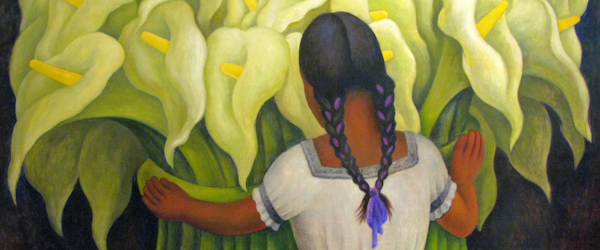 A través de la historia y del vergonzoso monopolio masculino del que se ha visto colmada, el hombre ha sido el cáncer más dañino para la mujer, el principal opresor de su libertad, el gran estafador de su inteligencia, el pregonero de su desprestigio, el destructor de su placer, el cobarde obsesionado en censurar su voz, su activismo, su pensamiento, y su lucha social por la justicia y la igualdad.
A través de la historia y del vergonzoso monopolio masculino del que se ha visto colmada, el hombre ha sido el cáncer más dañino para la mujer, el principal opresor de su libertad, el gran estafador de su inteligencia, el pregonero de su desprestigio, el destructor de su placer, el cobarde obsesionado en censurar su voz, su activismo, su pensamiento, y su lucha social por la justicia y la igualdad.
“La hipocresía masculina está en castigar en la mujer lo que aplauden del hombre,” dice Eduardo Galeano en uno de los relatos de su libro “Mujeres.”
En este magistral repertorio, Galeano nos presenta 167 historias breves, profundas e intensas, y llenas de respeto, dignidad, y admiración por la mujer. Cada historia las representa a todas ellas, inspiradoras mujeres que enfrentaron incalculables adversidades, y que nunca se rindieron por ver cumplir sus sueños.
Algunas de estas mujeres que transformaron a la humanidad y que Galeano humaniza magistralmente en sus relatos son: las hermanas Brontë, quienes tuvieron que esconder su género para poder escribir; Harriet Tubman, quien liberó a cientos de esclavos en EE.UU.; Nellie Bly por hacer periodismo de investigación en territorio de hombres; Marie Curie y sus dos premios Nobel en química y física; Susan Anthony, por su incansable activismo por el sufragio femenino; y Sor Juana Inés e Hipatia por pensadoras y preguntonas.
Por otro lado, Galeano logra también que sus palabras aterricen un mensaje preciso de denuncia patriarcal. La lectura nos obliga a digerir el amargo sufrimiento y las injusticias por las que muchas mujeres han pasado a lo largo de la historia, a veces incluso sacrificando sus propias vidas, en defensa de su dignidad y su libertad.
Entre aquellas historias de mujeres que murieron luchando por sus ideales, están las de Olympia de Gouges, activista por los derechos de la mujer durante la Revolución Francesa, la antropóloga Myrna Mack quien fue asesinada por criticar los abusos del gobierno de Guatemala hacia los indígenas, y la revolucionaria pacifista Rosa Luxemburgo, quien “quería un mundo donde la justicia no fuera sacrificada en nombre de la libertad, ni la libertad fuera sacrificada en nombre de la justicia.”
También dolorosos son los relatos de mujeres sedientas de justicia, pero que terminaron siendo víctimas de la brutalidad misógina y murieron en total anonimato.
Vivimos en tiempos muy contradictorios, de cambios políticos y sociales muy inestables. De repente siento que mucho ha mejorado en el tema de equidad de género, y a veces me angustio porque percibo que damos marcha atrás.
Falta mucho por hacer, y el primer paso que debe dar el hombre que no ha hecho nada para enmendar el rumbo hacia la igualdad, es dejar de ser obstáculo y convertirse en defensor de los derechos de la mujer, convertirse en un feminista más.
* Imagen: foto parcial de la pintura “Vendedora de Flores” de Diego Rivera.
 Ernest Hemingway’s epic story of Santiago, an experienced old fisherman determined to change his luck by sailing into the deep sea with the goal of making the biggest catch of his life, is one that shares with us so many enriching lessons on life, but also on leadership.
Ernest Hemingway’s epic story of Santiago, an experienced old fisherman determined to change his luck by sailing into the deep sea with the goal of making the biggest catch of his life, is one that shares with us so many enriching lessons on life, but also on leadership. We become thinkers the very precise moment when we acknowledge death and discover our own mortality.
We become thinkers the very precise moment when we acknowledge death and discover our own mortality. “I’m beginning to see that our appetite for books is the same as our appetite for food, that our brain tells us when we need the literary equivalent of salads, chocolate, or meat and potatoes.” – Nick Hornby
“I’m beginning to see that our appetite for books is the same as our appetite for food, that our brain tells us when we need the literary equivalent of salads, chocolate, or meat and potatoes.” – Nick Hornby Todos tenemos secretos que guardamos en los misterios de la vida y del amor.
Todos tenemos secretos que guardamos en los misterios de la vida y del amor.